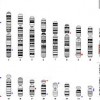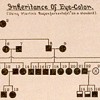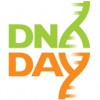Autism and Gut Bacteria?
Jun 25th
Here at the DNALC, we work with a lot of bacteria. One bacteria in particular is a harmless strain of E. coli called MM294. This strain, a strain unable to survive outside of its broth and agar domain, is used commonly in our classrooms. As students visit us each year, many have the opportunity to work with the bacteria. Whenever I tell my students that they will be working with E. coli, I tend to be on the receiving end of much criticism.
E. coli gets a bad reputation and I understand that. My students immediately cringe and I know what goes More >

Bipolar disorder and blood pressure
Jun 14th
A recent study from Michigan State University claims to find a link between bipolar depression and hypertension (high blood pressure). Results of the study presented at the American Psychiatric Association’s annual meeting showed that the presence of hypertension may impact the severity of the bipolar patient’s disorder and that a diagnosis of hypertension becomes more prevalent the younger a patient is diagnosed with bipolar disorder. Bipolar disorder (also known as manic-depressive disorder) is a mood disorder characterized by the experience of manic episodes (which can entail feelings of high energy, racing thoughts, irritability or even optimism raised to at times More >

Addicted cancers
Jun 9th
Most people know that smoking is a hard habit to kick because smokers become addicted to the nicotine and habit. Equally sad is the tendency of young adolescents to start smoking for social and psychological reasons.
In a turn-around of sorts, it may be comforting to know that cancers can become addicted, too. Cancer cells have many different genetic changes, as well as changes in the expression of genes that are not due to mutations called epigenetic changes. Although cancer cells do have many differences from normal cells, they are still very similar to normal cells, making it very difficult to More >

What’s in a Dream?
Jun 3rd
What did you dream of last night? Do you remember? You probably had several dreams last night. But what are dreams? Why do we have them? What is their purpose?
When your body enters sleep, your brain undergoes several sleep cycles, four to fives times a night. Each cycle has its own purpose. The cycles range from drowsiness and light sleep to deep sleep. After deep sleep, the body (or more technically the brain) will enter a stage called Rapid Eye Movement, abbreviated REM sleep. It is during this REM stage where many of our dreams happen.
Why do we dream? Many More >

Human Genome Project
May 25th
The initial goal of the Human Genome Project was to find, map and sequence all of the genes within the human genome. Since the completion of the initial draft back in 2000, the White House predicted that this would lead to a new era of molecular medicine, bringing new ways to prevent, diagnose, treat and cure disease.
It has been amazing to see what we have learned since then, but even more interesting to think of where this could go in the future. Hopefully soon we will be able to apply this on a more individual basis, with people being able to More >

Neandertal DNA and Proteins
May 19th
With the completion of the Neandertal genome by the team of Dr. Svante Paabo and a closer look at their proteins by Gregory Hannon’s team at CSHL, scientists reveal incredible similarities between Neandertals and humans.
Neandertals, the extinct species of what are most likely our closest relatives, lived on earth at the same time as our human ancestors but died out about 30,000 years ago. With the sequence of their genome now complete, we can compare the DNA to humans and chimpanzees to learn more about what makes humans unique as a species.
The discovery of fossils is an exciting link to More >

One Hundred Years Later….Eye Color Genes "Visualized"
May 17th
Understanding the inheritance of eye color has been a challenge for decades. Most parents try to make their best guess about their unborn child’s eye color, hoping for that warm brown or the more rare bright blue outcome.
"Eye Colors in Man," from The Trait Book, ERO Bulletin No. 6, by Charles B. Davenport, 1912 (Archive Image #1913)
Davenport and other eugenicists oversimplified eye-color inheritance early in the last century, and we have since come to discover that several genes determine eye color.
Recently, a group in the Netherlands has taken our understanding a step further by using high resolution imaging and More >

Breast Cancer Screening: Age or Density?
Apr 29th
Next to skin cancer, the most prevalent form of cancer in women is breast cancer. According to the American Cancer Society (ACS) the chance of developing breast cancer over a lifetime is less than 1 in 8. The most extensively used breast screening technique is an x-ray exam of the breast or mammogram. The ACS reports that organized mammographic screening reduces breast cancer mortality by more than 60%, and recommends yearly mammograms starting at age 40. Women with a strong family history of breast cancer, or who have other risk factors, are advised to begin routine screening earlier.
However, there’s no shortage More >

DNA DAY 2010: What, me worry about my DNA?
Apr 29th
Of course, everyone asks me what I think about National DNA Day, to which I usually reply, “Every day is DNA Day at the DNA Learning Center.”
DNA is business as usual for me and legions of genetic researchers and counselors, but its also becoming business as usual for a lot of average people who are interested in their health or genealogy.
People also often ask me how I feel about all the personal DNA data that is becoming available. To which I usually reply, “I’d be a lot more concerned about losing a credit card or my social security More >

Winter Move Over, Spring is Here!
Apr 20th
Seasonal Affective Disorder (SAD) or “Winter Blues”
Spring arrived on March 20th and it was hard to ignore. It was a hot day in Central Park with fellow New Yorkers rushing out to sit in the sun, play ball, or ride their bikes. In my hometown people rushed to the Bluff just to sit in the sand and stare off into the water of Long Island Sound. There were some die hard jet skiers that took the opportunity to get their jet skies into the water (even though the water was an icy 40 degrees). People are craving to be outside; to shake More >
